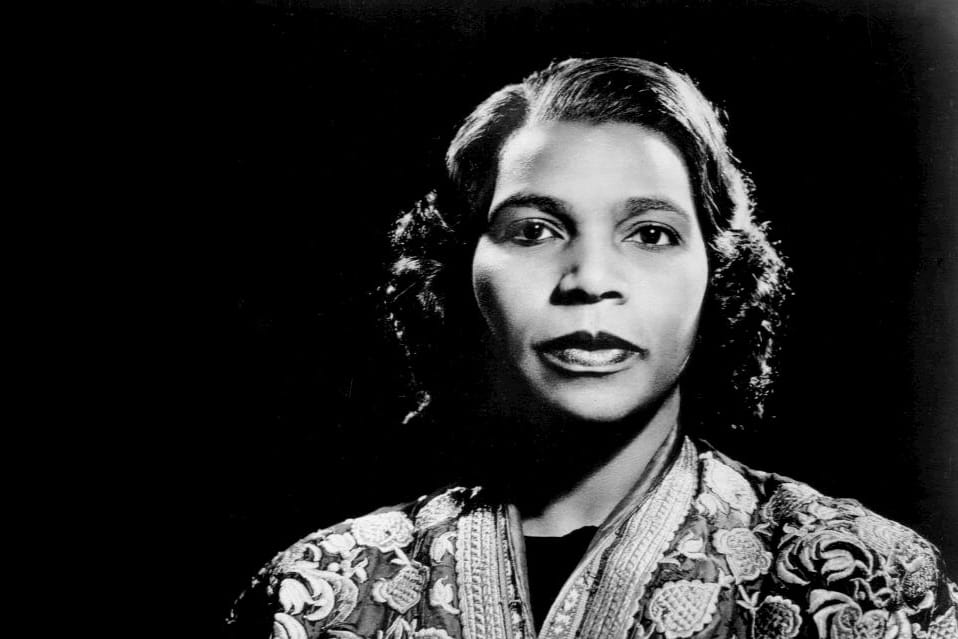
articles / Open Ears
Open Ears: Get to Know the Incredible Story of Marian Anderson

About Open Ears: So many people who made invaluable contributions to classical music were underappreciated in their time, or have been nearly lost to history. That’s why KUSC is starting Open Ears, a series of stories about composers, musicians, and conductors who deserve more recognition. You can learn more and explore other articles here.
Marian Anderson (b. 1897) was just six years old when she became a choir member at the Union Baptist Church (in her hometown of Philadelphia), where they nicknamed her “Baby Contralto.” Her father was a coal and ice dealer and was supportive of her musical interests. When she was eight, he bought her a piano. Since the family couldn’t afford lessons, she taught herself.
The church choir was so impressed by Anderson’s talent and motivation that the members of the congregation got together and raised money for her to study with a respected voice teacher. While she was studying, she entered a contest organized by the New York Philharmonic Society and won the chance to sing at Lewisohn Stadium in New York.
In 1928 Anderson performed at Carnegie Hall for the first time, and eventually received a scholarship that took her to Europe. By the late 1930s she was well known on both sides of the Atlantic. When she was invited by President Roosevelt and his wife Eleanor to perform at the White House, she became the first African American to receive this honor.
In 1939 her manager tried to arrange a performance for her at Constitution Hall in Washington, D.C. The owners of the hall, the Daughters of the American Revolution, told Anderson and her manager that no dates were available. But the real reason for turning Anderson away was a policy established by the D.A.R. that restricted use of the hall to white performers.
When word got out, there was a public uproar, led in part by Eleanor Roosevelt, who resigned from the D.A.R. in protest.

Eleanor Roosevelt invited Anderson to perform instead at the Lincoln Memorial on Easter Sunday. In front of a crowd of more than 75,000, Anderson gave a moving performance that was broadcast live to millions of radio listeners.
In 1955 Marian Anderson became the first African American to perform as a member of the Metropolitan Opera.






